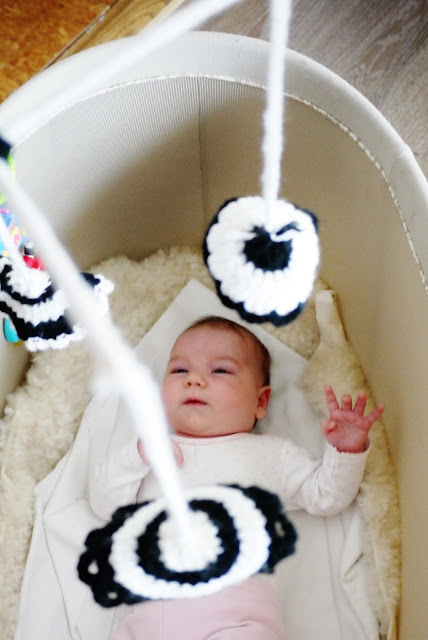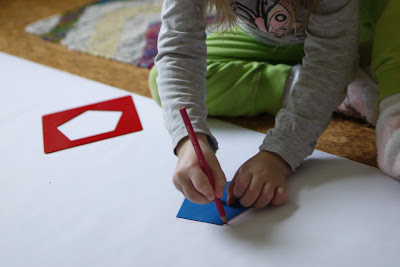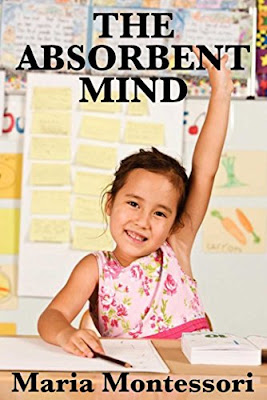Montessori vs Waldorf
Both of these theories are quite popular already (I'm talking of Latvia and Estonia), for some reason I have a feeling that Latvia is more of a Montessori country, and Estonia is Waldorf. But that might just be the information I have stumbled upon. (Still, there definately is a lot less active Montessori community in Estonia than Latvia.)
So as a Latvian, I first came upon the Montessori (I might have heard of Waldorf before, but was just thinking those are some weird schools with rainbows and knitting and no studying, so wasn't interested), and from the first moment I was sure that is something I will be wanting to implement, as I raise my own children.
And reading the book Montessori from The Start (about how to use Montessori methods with children until age 3) only reassured me.
However, then I read Beyond The Rainbow Bridge, a book about Waldorf concepts for children from birth to age 7, and I loved it.
It seemed to me, after reading these two books, that Waldorf and Montessori are not at all that different - they both have a respect for the child, his ability to learn from the world, both suggest a thoughtfully prepared environment and involving the child into everyday activities of the family life.
However, as I understand now, there are still some fundamental differences in these approaches, and it might seem that you cannot sit on two chairs at the same time, or can you?
For now I think I can. Because at this moment I can't choose, am I bigger supporter of Waldorf or Montessori. Neither, I guess, in their pure form. Because I find pluses and minuses in them both - in some aspects I love the Waldorf, in other agree with Montessori. And if I would have to take either of them purely, I would have a problem with it.
To say very shortly - I like the childhood that Waldorf suggests, it is a perfection. However, I do believe that children at some point want to learn (so called academical skills, like reading), and then it is wrong to not teach them - so I agree with early teaching of reading, maths etc in young children, as long as they are interested! (So-called Sensory period in Montessori.)
(All of these thoughts are until age 7, as I still plan to enroll children in a conventional school.)
And some more detailed aspects and where do I stand:
But for start our home will be a mixture - a beautiful play kitchen in the Waldorf-inspired play room, and a practical activity Montessori corner in the kitchen. ;)
So as a Latvian, I first came upon the Montessori (I might have heard of Waldorf before, but was just thinking those are some weird schools with rainbows and knitting and no studying, so wasn't interested), and from the first moment I was sure that is something I will be wanting to implement, as I raise my own children.
And reading the book Montessori from The Start (about how to use Montessori methods with children until age 3) only reassured me.
However, then I read Beyond The Rainbow Bridge, a book about Waldorf concepts for children from birth to age 7, and I loved it.
It seemed to me, after reading these two books, that Waldorf and Montessori are not at all that different - they both have a respect for the child, his ability to learn from the world, both suggest a thoughtfully prepared environment and involving the child into everyday activities of the family life.
However, as I understand now, there are still some fundamental differences in these approaches, and it might seem that you cannot sit on two chairs at the same time, or can you?
For now I think I can. Because at this moment I can't choose, am I bigger supporter of Waldorf or Montessori. Neither, I guess, in their pure form. Because I find pluses and minuses in them both - in some aspects I love the Waldorf, in other agree with Montessori. And if I would have to take either of them purely, I would have a problem with it.
To say very shortly - I like the childhood that Waldorf suggests, it is a perfection. However, I do believe that children at some point want to learn (so called academical skills, like reading), and then it is wrong to not teach them - so I agree with early teaching of reading, maths etc in young children, as long as they are interested! (So-called Sensory period in Montessori.)
(All of these thoughts are until age 7, as I still plan to enroll children in a conventional school.)
And some more detailed aspects and where do I stand:
- Play, fantasy and toys
Montessori doesn't really support fantasy and fantasy-play in young children (they do not prohibit, however, a free play), as at first child should learn the reality, to become able to use fantasy that is based on reality. Montessori doesn't really have "toys", but Montessori "materials" instead - each of them is meant for a specific task, not to be used otherways, for playing, for example.
Waldorf is a total opposite - suggesting, that exactly fantasy and on fantasy based play is the main and only task of a child until age 7. That children develop this way. Toys are open-ended, to stimulate the fantasy and imagination.
I choose Waldorf, as I think fantasy and imagination is a treasure of the child. It needs to be developed and encouraged (it can die, if the environment is not right - for example, by watching TV and playing computer games), only then some of it will last even until the adult years.
However, as I have heard - this does not always go for very little children (until age of 2, maybe) - because these little ones do not fantasize yet - they still are learning the world and different skills, and Montessori inspired materials are very useful here. I'm not sure, what is the age, where the imaginative play begins (I have observed at age 2,5), so until age 2 I still might choose Montessori, who knows.
- Social development
In Montessori environment each child works independantly, or sometimes in pairs. Children learn not to disturb others and wait for their turn. Older children help younger children. Teacher or parent only helps, but doesn't interfere.
In a Waldorf environment children interact in a social group, and the teacher is the leader of this group - modelling social behaviour and organising the activities of the group.
I am more of an individualist, and being in an organised group environment is a pain. But it is the other way around for other people, so here it really depends on a person, I think - are you an introvert individualist or an extravert social being. However, in life you need to be able to do both. So I can't choose here yet, I will observe my child, what will she be like, and then offer her the environment where she feels the best and the other one as well, but less.
So Montessori for me, but don't really know.
- Structure and order
In Montessori children are free to move, free to choose, what they want to do or work on, the day is not divided, the child's choice is respected.
Waldorf sees rhythm of the day (week, year) as very important - day is divided into different periods and activities, children always know, what is coming, in that way gaining a sence of security.
Of course, it's good to have freedom, however, I do believe that little children do not benefit from too much freedom and even too much choice. They need peace, stability, predictability, less stress is caused and children can feel secure and free. Also in Waldorf there is time for totally free play and outside time, so definately Waldorf in this.
- Intellectual development
Montessori says that child has an "Absorbent Mind" - that childhood is the best time to gain knowledge, that it comes easily, and children are interested to learn, if the right materials for learning are used.
Waldorf believes that children are not ready to learn until they are mature for it (around school age), so there is no teaching, as the only task is to develop fantasy and creativity.
I can't imagine that children would suffer from learning at early age - IF they are interested and want to! (Of course, I do not support pressure and pushing them..) But if the child is all day long pointing and asking - what is there written? And what is this letter? Why would you not teach them, using appropriate learing materials?
So Montessori. Even though, I do not like obsession with intellectual development of little children (taking it overboard, giving no time for kids to be kids, just to push more "learning" and "developing"), only thing you can gain like this is an unhappy child. I believe it's fine, if children do not learn until school (so I'm with Waldorf as well), because they can't be late for anything. But it's ok, if they want to.
But for start our home will be a mixture - a beautiful play kitchen in the Waldorf-inspired play room, and a practical activity Montessori corner in the kitchen. ;)
 |
Little one enjoying some very Waldorfy Montessori-inspired mobile :) |






Comments
Post a Comment